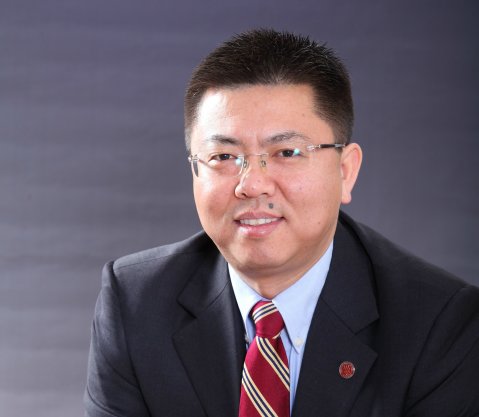For PhD Alumnus Kaifeng Yang ('03), Public Administration is Serious Business

Dr. Kaifeng Yang (PhD’03) was a businessman. With a bachelor’s, master’s, and doctoral degree in business administration, he was well-positioned for success in China’s business-focused economy that was largely grounded in state-owned enterprises (SOEs). Dr. Yang studied SOE management for several years and through his research developed a greater understanding of and appreciation for the field of public administration.
“SOE management was a management issue, but also a policy issue. I had to think about the role of government and came to realize the importance of public administration and policy,” Dr. Yang said.
His curiosity grew at a time when the study of public administration was practically unheard of in his home country of China. Despite its lack of recognition, he knew early proponents of the field and joined a small wave of those interested in the topic. This interest amounted to a mere hobby until he found himself at a professional crossroads while working as a senior manager at a business-consulting firm.
“I was asked to do a project that I did not feel comfortable doing,” Dr. Yang said. “The CEO wanted the profit, but the project had some bad public value implications and I felt that I had to listen to my ‘public service motivation.’”
Dr. Yang soon met with Dr. Marc Holzer, founding dean of the School of Public Affairs and Administration (SPAA), and was impressed by Dr. Holzer’s innovative and collaborative efforts with public administration scholars in China. He joined Dr. Holzer’s program at Rutgers University–Newark on a full scholarship to earn his second doctorate.
Studying in the United States proved challenging at the onset because Dr. Yang struggled with English. In addition to his schoolwork, he devoted hours to reading newspapers and watching English television programs and movies in order to overcome his language barriers. Once the stress of worrying about his English subsided, Dr. Yang found that classes became an entirely different experience.
“Every time I took a new class, it seemed that I entered a wonderland. I fell in love with different subjects due to these great professors,” Dr. Yang recalled.
With an expertise in citizen participation and performance management, Dr. Yang cultivated his scholarship along with his professional development. He joined the American Society for Public Administration (ASPA) and served on several committees and taskforces, including as chair of ASPA’s Center for Accountability and Performance and its Section for Public Performance and Management. He became a full professor at Florida State University and in 2012 was elected as a fellow of the National Academy of Public Administration (NAPA).
Dr. Yang’s rise in the field came full circle in 2014 when he returned to his alma mater, Renmin University of China, as dean of the School of Public Administration and Policy. Under his deanship, the school was ranked by the Chinese government as the best public administration program in the country and tasked with bringing the program to world-class status with the government’s support.
His achievements are recognized domestically as well, as Dr. Yang received SPAA’s Distinguished Alumni Award for Academic Excellence in May 2018.
“[The award] made me feel somewhat reassured as I always fear that I could let down my Rutgers professors and friends,” he admitted. “I feel the challenge and responsibility to work even harder and to make SPAA more proud.”
In addition to his position as a dean, Dr. Yang is the general secretary of China’s National MPA Education Steering Committee, a role in which he is working to incorporate positive changes to all of China’s MPA programs, including an effort to establish a national accreditation system.
Despite his many obligations and demanding schedule, he has no intention of abandoning his scholarly endeavors.
“There are many interesting reform stories in China, which constantly test the boundaries of public administration theories and models,” Dr. Yang said. “My Rutgers gene always reminds me that I still need to find time for some rigorous research.”
